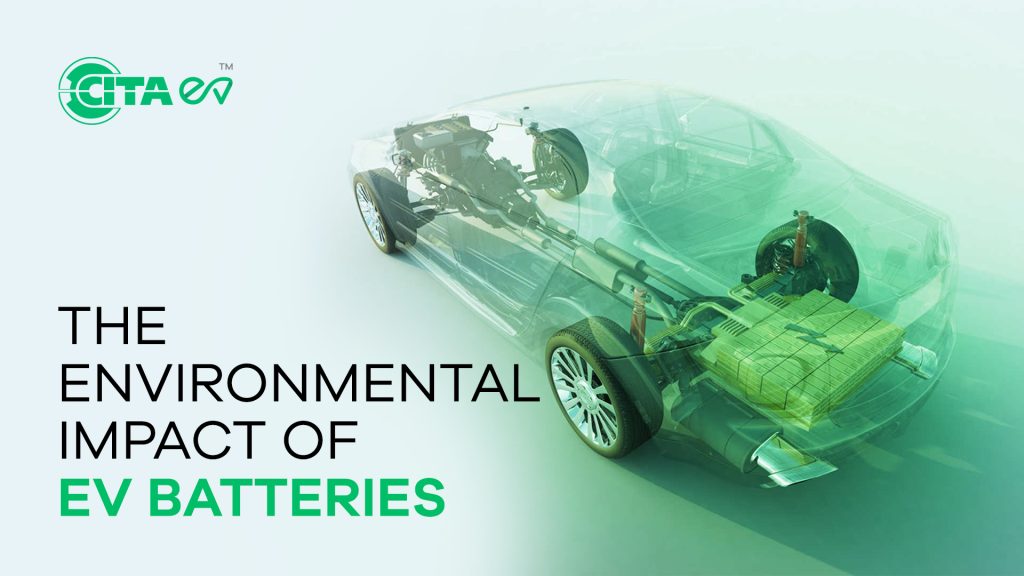As the world shifts towards sustainable transportation, electric vehicles (EVs) have emerged as a promising solution to combat climate change and reduce our carbon footprint. Central to the success of EVs are their batteries, which play a crucial role in powering these vehicles while positively impacting the environment. In this blog, we will explore the environmental benefits of EV batteries, with a focus on CITA EV and the significance of efficient EV charging.
EV Batteries: A Catalyst for Green Transportation
EV batteries are pivotal in the transition towards greener transportation. These advanced lithium-ion batteries offer several environmental advantages:
- Reduced Emissions: EVs powered by batteries produce zero tailpipe emissions, helping to combat air pollution and mitigate the adverse effects of greenhouse gas emissions.
- Renewable Energy Integration: By utilising EV batteries, we can store excess renewable energy generated from sources like wind and solar power. This allows for efficient energy use and helps balance the grid, further promoting a sustainable energy ecosystem.
- Life Cycle Assessment: EV manufacturers are increasingly investing in sustainable battery production, considering the environmental impact across the entire lifecycle of batteries – from raw material extraction to end-of-life recycling.

Efficient EV Charging: Maximising Environmental Benefits
Efficient EV charging practices are essential for maximising the environmental benefits of EV batteries. Here are some key considerations:
- Optimal Charging Times: Planning charging sessions during off-peak hours reduces strain on the grid and maximises the utilisation of renewable energy.
- Fast-Charging Infrastructure: Investing in fast-charging infrastructure, such as CITA EV chargers, reduces charging times and promotes EV adoption by eliminating range anxiety.
- Smart Grid Integration: Utilising smart charging technology enables grid integration and demand response capabilities, ensuring EV charging aligns with renewable energy availability and grid stability.
CITA EV is driving environmental progress by being a leading provider of electric vehicle charging solutions, and understands the significance of sustainable transportation. Their innovative EV charging infrastructure complements the eco-friendly benefit of EV batteries.

EV batteries, coupled with the advanced technology provided by companies like CITA EV, are driving positive environmental change in the transportation sector. From reducing emissions and integrating renewable energy to offering intelligent charging solutions, EV batteries are transforming the way we travel while prioritising sustainability. By embracing efficient EV charging practices and supporting the continued development of EV battery technology, we can collectively create a greener and cleaner future.
